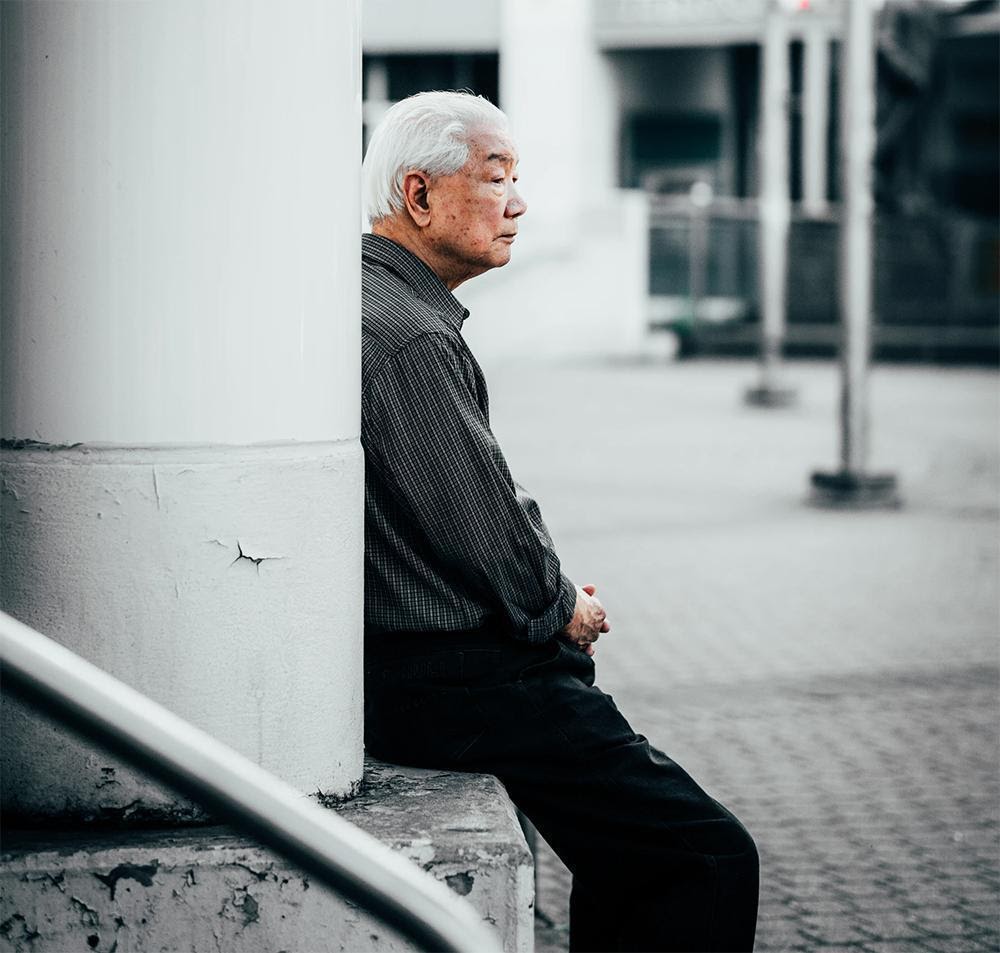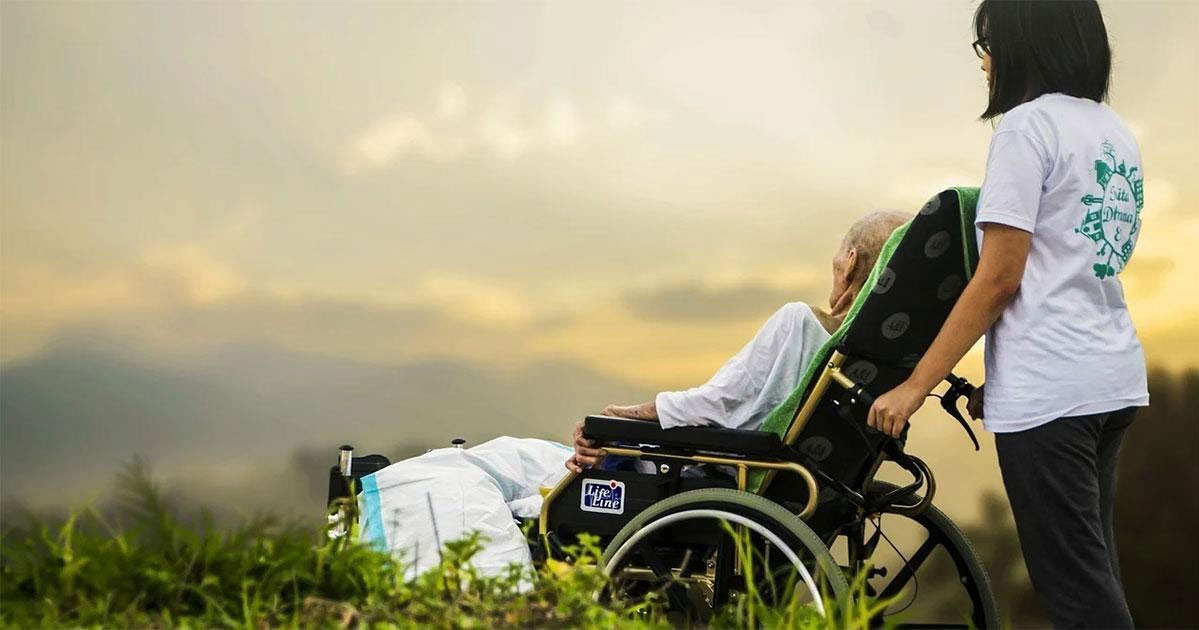If it takes a village to raise a child, what does it take to provide care for someone going through a second childhood?
If you were to ask caregivers of the elderly, the answer would always be: A lot -- and then some more.
Personal anecdotes clearly spell out the toll that caregiving takes, especially when the ones being cared for are the elderly and infirmed.
Caregiving labour is very often unseen.
Thankless, unpaid, and confined to one’s home, the reality is that caregiving will become more widespread.
Singapore’s ageing population
An ageing Singapore is already recognised as one of the major issues in the foreseeable future.
It has been projected that half of Singapore’s total population will be at least 65 years old in 30 years’ time.
In fact, a milestone demographic flip has already occurred.
In 2018, for the first time in Singapore’s modern history, the number of elderly Singaporeans aged 65 and above and youths aged 15 and below was the same.

Agency for Integrated Care (AIC) in Singapore
But caregiving is not all gloom.
Caregivers do develop their own coping mechanisms.
From the little triumphs of having good days to recognition to the knowledge that those being cared for are getting the best, all of this serves to emphasise the indispensable role caregivers play.
In Singapore, the Agency for Integrated Care (AIC) provides community-based services available to support caregivers and those being cared for.
The AIC’s role in the care community is to first let caregivers know that they are not alone.
Mothership spoke to some of our own young colleagues about their own personal caregiving experiences, what they have learned or are learning, and how they process their experiences.
As the years passed, the elderly mother gradually lost her mobility and became wheelchair-bound. I think she also developed dementia. I've never set foot in their home until early 2020 when the caregiving incident happened. I was 26 at that time, and it was the stark first-hand experience of what being a caregiver entails.
My mother, my brother, and I were called upon one day to help out of the blue.
I was asleep in the living room when there was a knock on my door at about 10:30pm. My mother answered the door. My neighbour had approached us to seek help as her elderly mother had fallen.
My mother woke me up and along with my brother and I, we went into my neighbour's home.
It was dark when we stepped in, with light only coming from the back of the flat where the kitchen and toilet was. When we stepped into the toilet, I saw the elderly mother lying on the floor by the toilet bowl. My neighbour told us that she was trying to move her from the wheelchair onto the toilet bowl when her mother fell.
My neighbour was drenched in sweat and we could see that the elderly mother had soiled her pants. What we had to do seemed straightforward -- help move the elderly mother back onto the toilet bowl so my neighbour could help to change the adult diapers and help her to wash up.
But it turned out there were some challenges. I have never been in a situation where I had to help an elderly off the floor. I did not know how I should go about it or if there are any precautions I should note when lifting an elderly person. The floor was also slippery, and the elderly woman had also soiled herself.
Eventually, I lifted the elderly woman from under her armpits while my brother helped to lift her legs. My mother and neighbour helped to look out and direct us. It was challenging to lift her weight while at the same time being careful with how we carried her.
Helping my neighbour and my elderly grandmother made me realise that I had not cared for my own grandparents in this way before. I felt guilty and became reflective of my own relationship with my grandparents.
My parents are also getting older, so in a way, this experience was a wake-up call for me to acknowledge the realities of being a caregiver for the elderly.
We managed to lift my neighbour's elderly mother onto the toilet bowl. We went back home but about an hour later, my neighbour returned to seek help to move her elderly mother on to the wheelchair and back to bed. We helped again. The simple routine of using the toilet has become a challenging process for both of them, and would only be more so as both of them get older.
Caring for the elderly is not easy. Support in one form or another would definitely help, whether it is having someone to assist, or being equipped with knowledge on how to care for the elderly.
I wish I had known my neighbours better so I could have been more aware of the challenges they face.
We had to start giving care to him in stages. Most notably when I graduated from secondary school when it got harder for him to take care of himself, and when he started to experience hallucinations.
My mum quit her job to take care of him full time. The current routine where I take turns to care for my dad with my mum and sister started around when I was 19 or 20.
My dad’s Parkinson's disease was at a late stage where he needed help with dressing, showering and feeding to a small extent. He also has medication hourly, along with medication he needs to take in the morning and night as well. When he goes to bed, we need to change him into diapers, and once more before we retire for the night.
The difficulty was dealing with the different challenges in different years. At the height of his hallucinations, my dad was aggressive, shouting at invisible things, and at some points driven to be suicidal. Now he’s considerably calmed down, but he doesn’t talk much anymore. He isn’t enthusiastic about helping himself cope better -- he pretty much acts like any old man, 10 or 15 years older than him.
Physically, he’s weaker. As he is much heavier than us and my mum’s health is not great, this is a double burden as I have to worry about both my parents’ safety when we help him to the toilet, diaper changes, etc.
He has fallen down before, which caused him to be hospitalised, and with our mum being literally two to three times lighter than him, we have to worry about both parents taking care of him.
As a young adult, the difficulty is having to figure out life with these other responsibilities to shoulder. It does sound selfish, but there are moments of wondering why it happens to you at this age, when everyone else is enjoying and living life.
Half my Sundays are spent at home instead of being out with friends, because our helper is on leave, and there is that occasional sadness that part of my young adult life is sacrificed for the sake of being there for my parent. You are being filial, but sometimes filial piety doesn’t erase the inevitable pity you have for yourself.
We are coping for now. We take turns to go out with friends, making sure our mum has a breather, and we find ways to have some kind of assistance with the caregiving - like making use of caregiving services when our helper went home some time ago.
There will be more difficult questions in years to come, but for now it’s finding the outlets that help you cope with the situation you can’t change.
Caring for your parent doesn’t need you to master everything at once. I’m thankful that in recent years there are more programmes, apps, courses, etc. to help us cope better with caring for an aged parent.
Seeking help is not washing our hands off the responsibility for the health and wellness for our parents, but in fact, is part of what we do to ensure that they get the care we need, while not neglecting our own needs.
Caregiving is not an act of martyrship. Help exists so that we may all move forward with everyone equally taken care of.
It’s okay to be frustrated and lost. However, seeking help is important. It’s easy to feel alone in giving care to a dependent person, but this doesn’t always have to be the case.
My aunt was my grandpa’s primary caretaker -- I can’t remember the exact year -- but I recall having to help with taking care of my grandpa at times when my aunt was busy with work.
There were times when my grandpa would have difficulty expressing what he wanted, and because we couldn't understand him, he ended up throwing tantrums. It was quite frustrating to look after him, but at the same time I wanted to try to help him, and that was a constant struggle.
Gradually, my grandpa lost the ability to speak, and also required assistance with daily activities like eating and going to the toilet. We ended up having to hire another caregiver to help with looking after my grandpa, despite the financial strain.
I wish I had been more understanding towards him, and also helped find out how to contribute financially towards the care that he was receiving.
Caregiver Support Available
Caregiving is not an easy task but there are various caregiver support available.
Agency for Integrated Care (AIC) provides support and resources specifically for caregivers to increase their ability and confidence in caring for their loved ones, and to stay mentally and emotionally resilient.
Here is a list of the types of support available.
ABCs of Caregiving Course: Covers all essential skills needed to care for your loved one’s daily needs, based on their mobility condition. The home-based or classroom-based courses are tailored for informal caregivers who look after seniors every day, including Foreign Domestic Workers (FDWs).
Caregiver Training Courses: Training courses to enable the carer with skills and knowledge to take care of someone’s personal care needs.
Caregivers Training Grant: $200 annual subsidy that lets caregivers attend approved courses to better care for their loved ones. The $200 subsidy is provided for each care recipient every financial year (from April to March the following year).
Home Caregiving Grant: $200 monthly cash payout to support your loved ones with at least permanent moderate disability, i.e. always require some assistance to perform three or more Activities of Daily Living (ADLs). This grant can be used to defray the costs of caregiving expenses, such as the costs of eldercare and caregiver support services in the community, or hiring of a Foreign Domestic Worker (FDW).
Respite Care: Short term, temporary care options, otherwise known as respite care options, for caregivers to tap on to take a break from caregiving, or when extra assistance is needed from time to time, such as when the helper goes on home leave.
AIC Links: Caregivers and their loved ones can approach any of 12 AIC Links to get information from finding care-at-home, centre-based care services and caregiver support.
This article was brought to you by the Agency for Integrated Care (AIC).
If you like what you read, follow us on Facebook, Instagram, Twitter and Telegram to get the latest updates.
